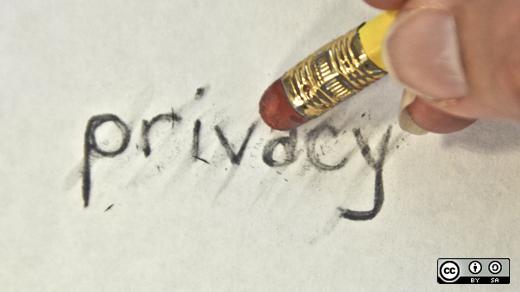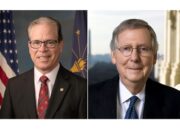By and large, nonprofits that engage in issue advocacy strenuously protect the privacy of their donors. Google “donor privacy policy,” and you will see thousands of nonprofits explicitly guaranteeing to protect their supporters’ privacy. In fact, organizations that rate and review nonprofits include a strong donor privacy policy among their criteria for receiving a positive evaluation.
Why is this standard practice among nonprofits? Because supporters demand it. Nonprofits know that many individuals would choose not to give if their privacy was not guaranteed.
However, legislators in some states are pushing bills that would force nonprofits to hand over the private information of their supporters to the government, which will then make that information publicly available. The targets of these laws are groups that speak on public policy. You may think that this excludes a large majority of nonprofits, but even groups that don’t primarily focus on policy issues will have something to say when government touches their core mission. For example, charities that seek to serve the homeless may want to weigh in when lawmakers are considering bills meant to address homelessness.
From adherence to religious teachings to simply wanting to avoid unwelcome attention or solicitations, nonprofit donors have a variety of reasons for valuing their privacy. Those that give to organizations that speak about controversial issues, such as abortion or gun control, have a particular interest in protecting themselves from harassment and threats they may experience if they are publicly exposed as a financial supporter of such causes. Disturbingly, these are precisely the donors that such disclosure laws seek to expose.
Fortunately, groups across the ideological spectrum are speaking out against these laws.
In New Jersey, progressive groups vocally opposed a bill intended to expose the donors of groups that speak about policy issues being considered by the Legislature. According to NJ.com, “a coalition of more than 40 progressive groups, labor unions, and faith leaders called on [Governor Phil] Murphy not to sign the bill until lawmakers agree to” pass companion “cleanup” legislation meant to address the provisions most damaging to advocacy organizations. The coalition called the bill “a direct attack” on progressive groups and said it would have a “chilling effect” on their advocacy.
Despite signing the bill, even Governor Phil Murphy, a Democrat, expressed concern in his signing statement “that extending the disclosure requirements to cover advocacy that is not connected to an issue before the electorate may infringe upon constitutionally protected speech and association rights… the United States Supreme Court has long recognized the harm that overly broad disclosure requirements can cause to an organization, its mission and its members.”
Now that the bill has become law, Americans for Prosperity, a libertarian-leaning nonprofit, is challenging it in federal court. The American Civil Liberties Union of New Jersey previously announced they were preparing to sue over the law. And the Brennan Center for Justice, a progressive group that can often be found advocating for more nonprofit donor disclosure, has said that provisions of the law that force organizations “simply trying to advocate for policy change” to hand over their donor lists to the government for public exposure “raise serious First Amendment concerns.”
New Jersey’s experience isn’t unique. In Oregon, a group of organizations that “work to advance social justice issues in Oregon by encouraging communities of color to engage directly in our democracy” urged state legislators to vote against a bill that “regulates issue advocacy” and “compels nonprofit organizations to disclose donors who do not have any connection to the political activity referenced in [the] bill.”
Unfortunately, lawmakers ignored these concerns and sent the bill to Governor Kate Brown, who is expected to sign it into law.
Groups operating at the national level are also standing up for their supporters’ right to privacy.
When Politico asked why the Open Markets Institute, described as “a liberal think tank,” doesn’t disclose its donors, Open Markets Fellow Matt Stoller responded that “monopolies are vindictive.” The group’s Deputy Director, Sarah Miller, added, “When you are going up against the world’s most powerful companies, it is probably not strategic to expose some of the people who want to fund that work.”
This highlights an often overlooked reason that groups guard the privacy of their donors: protection from corporate retribution. The Open Markets Institute advocates for the regulation and break-up of large corporations. These corporations are well-equipped to use their vast resources to target, harass, and intimidate Open Markets’ donors – if they can identify them. That’s why privacy is so essential for groups that criticize the powerful.
Also at the national level, the American Civil Liberties Union (ACLU) has spoken out against the DISCLOSE Act, which is included in House Democrats’ signature bill of 2019, H.R. 1. In a letter to Congress asking members to vote against H.R. 1, the ACLU said, “The upshot of the DISCLOSE Act, and the essence of why we oppose it, is that it would unconstitutionally chill the speech of issue advocacy groups and non-profits such as the ACLU, Planned Parenthood, or the NRA that is essential to our public discourse and protected by the First Amendment.”
Although it’s often lost in the discussion, nonprofit donor disclosure laws affect groups across the ideological spectrum. Far from strengthening democracy, these laws undermine essential democratic debate. Every American has a constitutional right to free speech and privacy in association. The fact that some corporations and politicians would like to know who’s supporting groups they don’t like doesn’t change that. Lawmakers and activist groups pushing such bills would do well to remember this reality.














